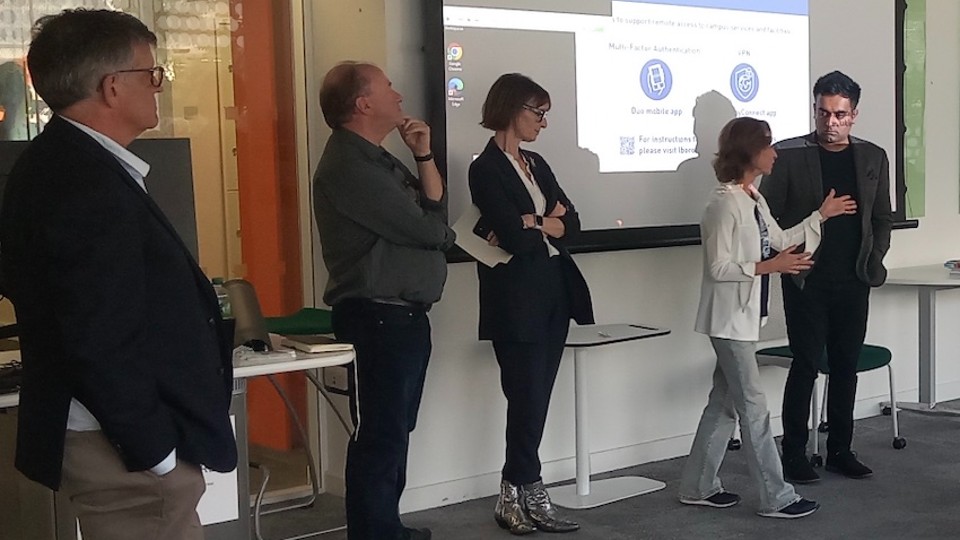Organised in collaboration with colleagues from Ipsos UK and the British Polling Council, the event heard from a range of experts with insights into how the election was fought, reported, and analysed. This follows on from the Centre’s analysis of the 2024 General Election.
Simon Atkinson (Ipsos UK) and Dominic Wring (CRCC) opened the conference, the twelfth electoral post-mortem of its kind to have taken place since Margaret Thatcher’s first victory in 1979. This and each subsequent event have resulted in a book length exploration of the campaign in question, and the most recent instalment in a series that has been co-edited by the conference organisers for twenty years. Plans are in place for a volume on the 2024 General Election with sections reflecting the three strands of the event which were devoted to the media, parties, and voters.
Opening the sessions devoted to the media, David Deacon and David Smith (CRCC) presented the Centre’s audit of press and television news coverage of the campaign. Ric Bailey (Chief Political Advisor, BBC), Isla Glaister (Elections and Data Editor, Sky News) and Kishan Koria (Editor, ITV Peston) then provided insights into how the UK’s foremost broadcasters engaged their viewing publics while also seeking to hold the various politicians to account. Emma Hoskyns (Head of Special Projects, ITV News) closed the sessions with an account of her experiences producing election night programming.
The 2024 Election resulted in Labour returning to office having secured a landslide victory with only a small increase in their vote share. In the panel exploring the party campaigns, Tim Bale (Queen Mary London) considered the various reasons behind the change of government. Seasoned election analyst Robert Hayward (Conservative, House of Lords) spoke about the various difficulties that befell Rishi Sunak and his colleagues. The electoral system was a major factor in determining the outcome of the campaign and Paula Surridge (University of Bristol) examined the Liberal Democrats’ impressive gains in terms of constituencies won. Alex Wilson (Reform UK, London Assembly Member and parliamentary candidate, Ilford North) also discussed his party’s advances in the election including their securing of parliamentary representation for this first time with the third largest vote share.
The session devoted to understanding the electorate heard several polling experts speaking about the campaign from the perspective of the voting public. Beth Kuenhel Mann (YouGov) and Sarah Ledoux (YouGov and University of Manchester) reviewed some of the findings from their extensive quantitative opinion research studies undertaken during the campaign. Luke Tryl (More in Common) complemented their analysis with several observations based on focus groups with selected groups of voters. Reflecting on his work with leading firms, Simon Atkinson (Ipsos) considered the relevance of branding in contemporary politics. The journalist and political commentator Miranda Green (Financial Times) discussed the challenges of reporting on an election in which so much polling data was made available.
The conference marked the formal launch of the first major academic exploration of the 2024 General Election - www.electionanalysis.uk involving 130 authors and over 100 chapters published online shortly after polling day. Two of the volume’s Co-Editors Emily Harmer (University of Liverpool) and Dan Jackson (Bournemouth University) introduced a special session featuring three of their contributors: Jen Birks (University of Nottingham) spoke about the culture war dimension to the campaign; James Dennis (Portsmouth University) explored how young people perceived the election; and Liam McLoughlin (University of Liverpool) considered the contribution of AI to political discourse.









